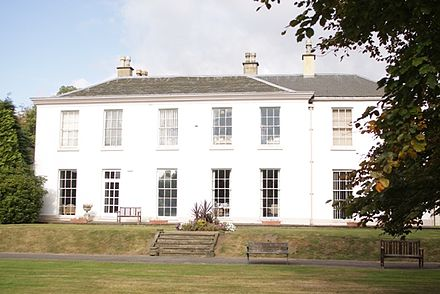St. John’s, Nottingham, a 156-year old Anglican theological college, has announced its pending closure.
The College had links with the C of I Theological Institute through visiting staff and accreditation of some courses.
Chris Smith, the chair of the theological college’s council, said “it was agreed that the operation of the current configuration of St John’s is no longer financially viable in the long term.” St. John’s youth ministry and distance learning programs will be absorbed by other institutions, and currently enrolled students will be able to complete their degrees.
Enrollment at St. John’s, which is associated with the “open” or inclusive evangelical tradition, has declined notably in recent years. There were 60 students last year, down from 223 in 2016, when the college stopped recruiting residential students. A large portion of the college’s property was sold to a housing developer in 2017 to alleviate financial pressures.
St. John’s had also phased out the training of Anglican ordinands, its original purpose, focusing instead on youth leader training through the Midlands Institute for Children Youth and Mission, a programme founded with the evangelical ministry Youth for Christ. An announcement in October that the Midlands Institute was planning to move to Leicester next year to merge with another similar programme left St. John’s with few options.
A report on ordination training in the Church of England released in early December suggests that the Church of England’s remaining 10 residential seminaries may be facing similar pressures. While the overall number of ordination candidates beginning their training has increased by 15 percent since 2016, those studying in residential programs is down by 22.7 percent, to just 170 students.
More than twice as many ordinands participate in lower-cost “contextual” programs. These combine practical experience in a ministry setting with non-residential classes, a model that St. John’s, Nottingham pioneered in the 1990’s. St. Mellitus College, an all-contextual seminary founded in London 2007, now trains a full 25% of Anglican ordinands through its full-time contextual programs, based in five centres in different parts of the country. St. John’s hopes to pass on its library to the newest St. Mellitus centre, which opened this fall in Nottingham. The largest number of new ordination candidates—222 of 547—are trained in part-time local contextual programs.
Recent Charity Commissioners reports indicate that two of the 10 remaining traditional seminaries, liberal Catholic Wescott House and conservative evangelical Oak Hill, have suffered enrollment declines, falling “significantly below levels needed for long-term sustainability.”
The Rev. Dr. Alex Jensen, principal of the Eastern Regional Ministry Course, told The Church Times, “Hardly any college or course is financially sustainable. I think there is a recognition in the Ministry Council that there is something wrong. … The question is if changes will be made before the next college or course falls by the wayside.”
St. John’s was founded in 1863 as the London College of Divinity, to provide an evangelical theological education for Anglican ordinands who lacked the means for a university education. The nineteenth century saw the foundation of scores of Anglican theological colleges by dioceses, religious orders and entrepreneurial clergymen. These were mostly organized along church party lines, and over two dozen of them were educating Church of England ordinands at the beginning of the 20th century.
St. John’s was renamed in 1970, when it moved from London to its current location under the leadership of legendary evangelist Michael Green. Archbishop of Canterbury Donald Coggan had served as its principal, and Archbishop George Carey was a graduate. Other former principals have included prominent evangelical Anglican scholars John Goldingay, Anthony Thistleton and Christina Baxter.
DraggedImage.f3027cfb4dbb4149990826e68305b512.png



